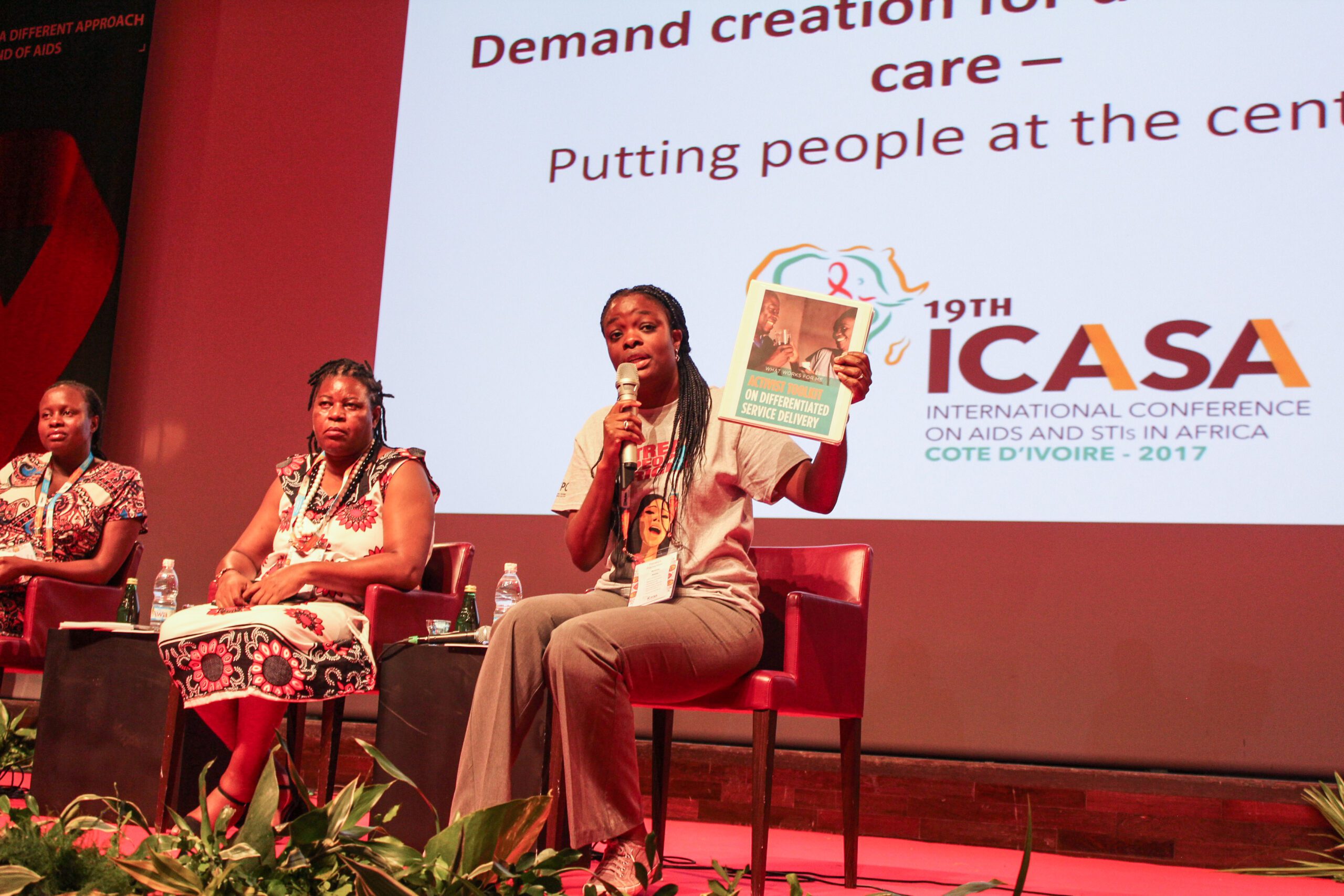FOR IMMEDIATE RELEASE
Côte d’Ivoire Hosts Launch of Global Toolkit for HIV Activism
ABIDJAN, Côte d’Ivoire. November 28, 2017—A new toolkit has been developed to empower people living with the human immunodeficiency virus, or HIV, to get access to the specific treatment options that suit them best.
The International Treatment Preparedness Coalition (ITPC) and the AIDS and Rights Alliance of Southern Africa (ARASA) developed the toolkit, in collaboration with the International AIDS Society (IAS).
The new toolkit – titled What Works for Me: Activist Toolkit of Differentiated Service Delivery – proposes an approach known as differentiated care, or differentiated service delivery. It is a client-centred approach that simplifies HIV services. People living with HIV find that their needs are better served in this way. Health systems also carry less burden with this approach.
“A growing number of countries are putting supportive policies in place for a differentiated service delivery approach, but communities will be vital in creating demand for these to move from policy to practice,” said Anna Grimsrud, the lead technical advisor for HIV Programmes at the IAS. “This new toolkit enables communities to demand recipient-centred models of differentiated care, most specifically differentiated antiretroviral therapy delivery.”
The launch of the toolkit took place as part of the International Conference on AIDS and STIs in Africa (ICASA), in Abidjan, Côte d’Ivoire.

Hundreds of participants from across Africa will gather for the high-profile event. It will focus on a broad range of issues related to HIV care, prevention and treatment issues. Among the delegates will be a broad range of stakeholders, including representatives from civil society, governments and technical expert groups.
The toolkit launch happened on the opening day of the conference, putting special attention on practical strategies that communities can use to advocate for better quality of care. This recipient-centred approach is relevant for groups of people who are at increased risk of HIV infection, such as adolescents. It is also especially relevant to other key populations, including men who have sex with men, people who inject drugs, sex workers and transgender people.
“HIV has become a manageable chronic illness,” said Michaela Clayton, Director of ARASA. “People living with HIV understand how their treatment works and the importance of adherence, so services should be provided in a way that suits the daily lives of people living with HIV. This makes adhering to treatment easier and respects a rights-based approach to service delivery.”
More than three decades after the first reported case of AIDS, sub-Saharan Africa continues to be the most heavily affected region in the world. Some research suggests that the HIV response is not strategically directed toward prevention, care and treatment programs for communities with concentrated epidemics.
“Our response to HIV is to empower people from different communities across the globe to access treatment on their own terms,” said Solange Baptiste, executive director of ITPC. “We believe that this activist toolkit will help affected communities to understand how to demand treatment that is context-specific, informed by evidence, community-led and people-centered. This new toolkit not only educates people about their own treatment needs, but empowers them to demand better access,” she added.
In February 2017, ITPC launched the Regional Community Treatment Observatory in West Africa. This project that aims to give West African communities more effective ways of access the treatment they need. Through the project, community-based monitoring of HIV treatment is being extended to Benin, Côte d’Ivoire, Gambia, Ghana, Guinea, Guinea-Bissau, Liberia, Mali, Senegal, Sierra Leone and Togo.
“The fact is, we really needed to change our approach,” said Alain Manouan, who directs the project across the eleven countries. “As we have seen throughout the HIV epidemic, it is only with the strong engagement of communities and meaningful involvement of people living with HIV that the trajectory of the epidemic will be changed.”
Following the launch in December, ITPC plans to use the toolkit to conduct extensive hands-on treatment education training in select countries around the world.
